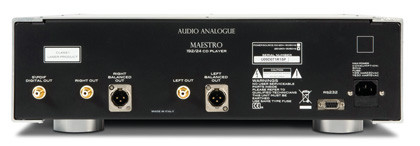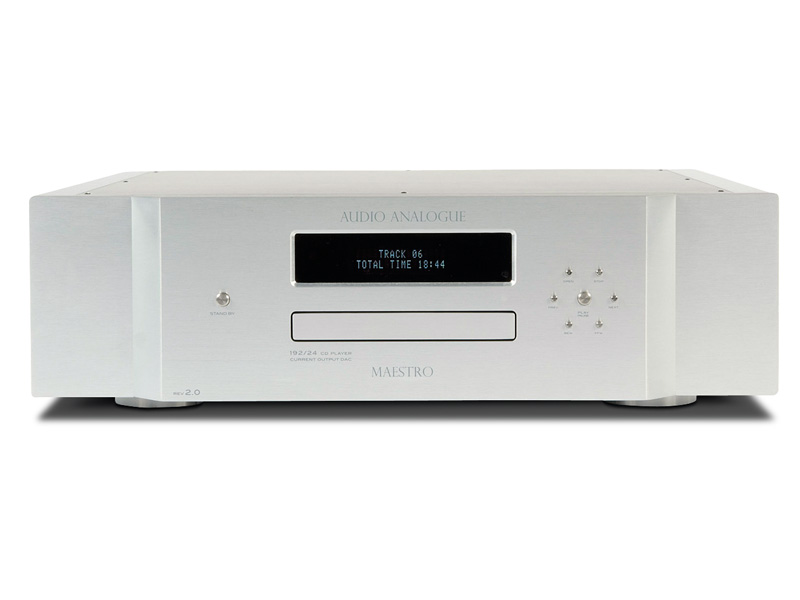TechRadar Verdict
Pros
- +
Refined highs
- +
Good image quality
- +
High detail level
- +
Great build
Cons
- -
Handset is very tactile but has few functions
Why you can trust TechRadar
Audio Analogue's Maestro range represents the pinnacle of its achievements: the Special Edition power amplifiers that carry the same badge cost in the region of £20,000.
The Maestro CD player is the penultimate Audio Analogue disc-spinner, second only to the SE version which comes in at twice the price.
Our test model is the second revision of the design, or CD192/24 REV2.0 as they call it in the technical dept. It differs from its predecessor in having a TEAC CD-ROM transport mechanism, chosen for its sturdiness and low-jitter output.
The display has also been changed to a high-contrast VFD-type (vacuum fluorescent display) that uses white dots to produce a fairly small description of what the player is doing. This, combined with the lack of any direct track access from the remote, makes selecting specific tracks a little tricky.
The handset also looks very cool in its jewel-like metal case and is appealingly solid. The buttons on the player's front are artfully arranged, but have very small legends. After a while, however, you remember that the one at 11 o'clock opens the smooth-action drawer and the central one instigates play, which is all you really need.

Connections are pretty much par for this price area; a pair of good-quality RCA phono sockets sit alongside XLRs and a single digital output.
Sound quality
Sign up for breaking news, reviews, opinion, top tech deals, and more.
The Maestro is an exceptionally refined solid-state player and also quite expensive. We particularly liked the quality of its high notes, which avoid the very fine grain found with most transistor designs and allows it to give a detailed, yet natural sound.
It's also strong on timing, thanks to a degree of precision in the midrange that allows you to hear into each mix with considerable clarity; it could almost be a valve-based player, but has a touch more edge-definition and stronger bass than most designs.
While we were not entirely in agreement about the Maestro, overall it proved to be the most popular player on the day. In fact, there is a lot to like, an "open and airy" soundstage that is well projected into the room and the "best image with wide-crowd ambience from the live Kraftwerk track".
There were also a number of comments along the lines of "quite musical, good timing especially in the bass" and "good sense of acoustic, you can hear the hall this was recorded in" with regard to our La Folia piece. It even appeased the most critical panellist who clearly enjoyed the latter track, describing it as, "delicate, open and airy".
This is a high-quality player in all respects and the only one that can combine superb detail-resolution with genuine musical fluidity. Timing is excellent, as are dynamics and these are the qualities that bring the music to life.
Follow TechRadar Reviews on Twitter: http://twitter.com/techradarreview
